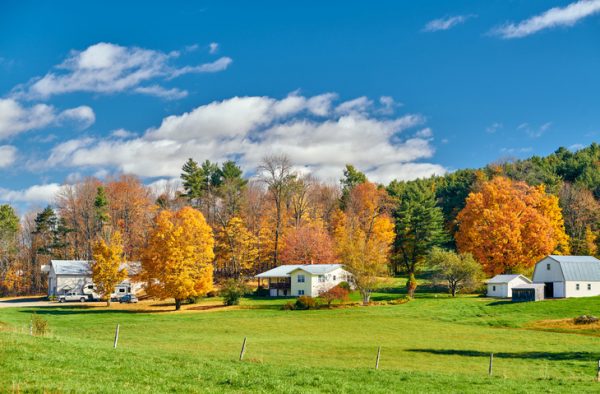Thinking about buying a home in the Ottawa area?
What to Look for When Buying a Rural Property
 Although purchasing a rural property can be exciting, it’s important to understand the key differences between rural and city living. Rural living has countless perks, especially for people trying to escape the hustle and bustle of city living, but it's important to look at the following aspects prior to making the leap.
Although purchasing a rural property can be exciting, it’s important to understand the key differences between rural and city living. Rural living has countless perks, especially for people trying to escape the hustle and bustle of city living, but it's important to look at the following aspects prior to making the leap.
Does the property have a proper size septic system?
This issue can sometimes be overlooked by buyers who have little experience with rural properties. Unlike city living, most rural properties operate on a septic system. Septic systems have something called a leash field which essentially collects sewage and water waste. The size of the leash field is dependent on the size of the house, and the number of people expected to be living in it. If an addition has been made to the house it’s expected that the leash system be updated as well. Ignoring this, could lead to costly expenses down the line.
Is the road private?
Private roads are cared for, maintained and repaired by those who live on them. This means you and your neighbours are expected to finance anything and everything related to the care of the road. This is an additional expense that must be accounted for. Consider asking the owner what this expense looks like for the particular property you’re looking to purchase.
If the power goes out, what is the average length of time?
This may seem a little silly but power outages in rural places tend to last much longer. If the average power outage lasts two days it may be relevant to know.
What does accessibility look like (especially during the winter)?
The majority of buyers purchase sometime between April and October. This means very few buyers are aware of what winter living looks like at their new home prior to purchasing it. In rural areas, it’s even more important to be aware of accessibility during the winter months. How often does the snow get plowed? If the answer is once the storm is finished this could make commuting slightly more difficult.
Does the drinking water require additional treatments?
Most rural properties have their own private wells which can equate to some pretty great tasting drinking water but others may require specific water treatments. It’s important to know what is expected of you to ensure the drinking water is safe. This too can become an additional expense you hadn’t accounted for.
What are the restrictions and zoning rules?
This is specifically important to those hoping to build additional amenities. This information can be accessed through the local municipalities or towns.
Can you maintain the amount of property?
The excitement of owning a new home eventually wears off and this means spending your Saturdays cutting grass may not always be something you’re willing to do. Rural properties require far more frequent maintenance. This means you need to be committed even after the excitement wears off.
What do the travel times look like, is it an additional expense?
Commuting for some isn’t an issue but it’s still important to know how far the closest grocery store is or how far the schools are. Travel times can add up and for those who already live a busy lifestyle, the extra commute time may not be doable. It’s also important to budget the additional wear and tear on your vehicle (and don’t forget gas!)